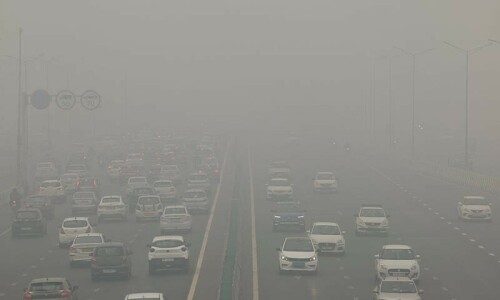Cars more than 15 years old will soon be barred from refuelling in New Delhi, the city’s government said on Saturday, as part of measures to reduce the Indian capital’s hazardous pollution levels.
New Delhi is regularly ranked as one of the most polluted cities in the world and is blanketed in acrid smog each year.
The pollution is primarily blamed on agricultural burning by nearby farmers to clear their fields for ploughing, as well as factories and traffic fumes.
Cooler temperatures and slow-moving winds worsen the situation by trapping deadly pollutants each winter.
Diesel and petrol cars older than 10 and 15 years, respectively, are not allowed to ply on Delhi roads, but many have been found flouting the rules.
Delhi’s Environment Minister Manjinder Singh Sirsa told reporters on Saturday that the decision to stop fuel for the old cars was made at a “marathon meeting” on air pollution to “find out the diseases and its remedies”.
“We have decided to stop giving fuel to vehicles more than 15 years old after March 31, 2025,” he said.
He said “gadgets” would be installed at petrol pumps to identify such vehicles.
Sirsa said other decisions taken include turning barren land into “new forests” and getting university students involved in planting.
He also said the government would make it mandatory for high rises, hotels and Delhi airport to install anti-smog guns and gadgets to control pollution.
The public health crisis has grown steadily worse over the years, and weeks-long school closures across the capital aimed at shielding vulnerable children from the harmful air are now an annual occurrence.
At the peak of the smog, levels of PM2.5 pollutants — dangerous cancer-causing microparticles small enough to enter the bloodstream through the lungs — surged to more than 60 times the World Health Organisation’s recommended daily maximum.
Piecemeal government initiatives, such as partial restrictions on fossil fuel-powered transport and water trucks spraying mist to clear particulate matter from the air, have failed to make a noticeable impact.














































